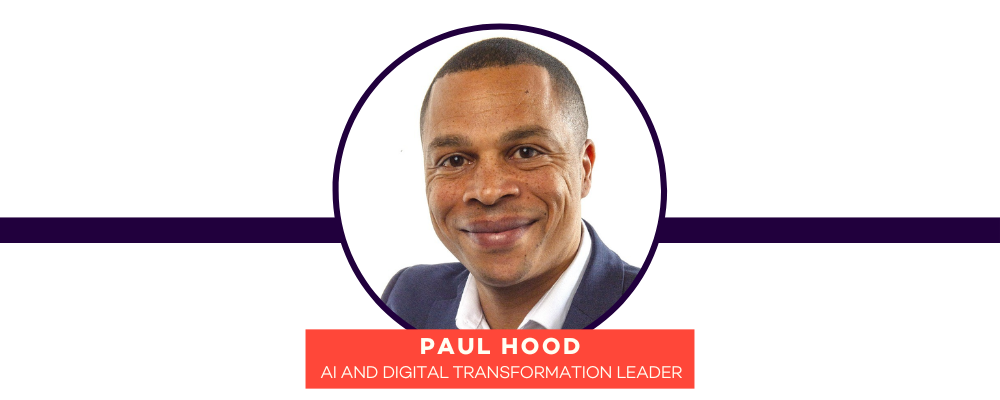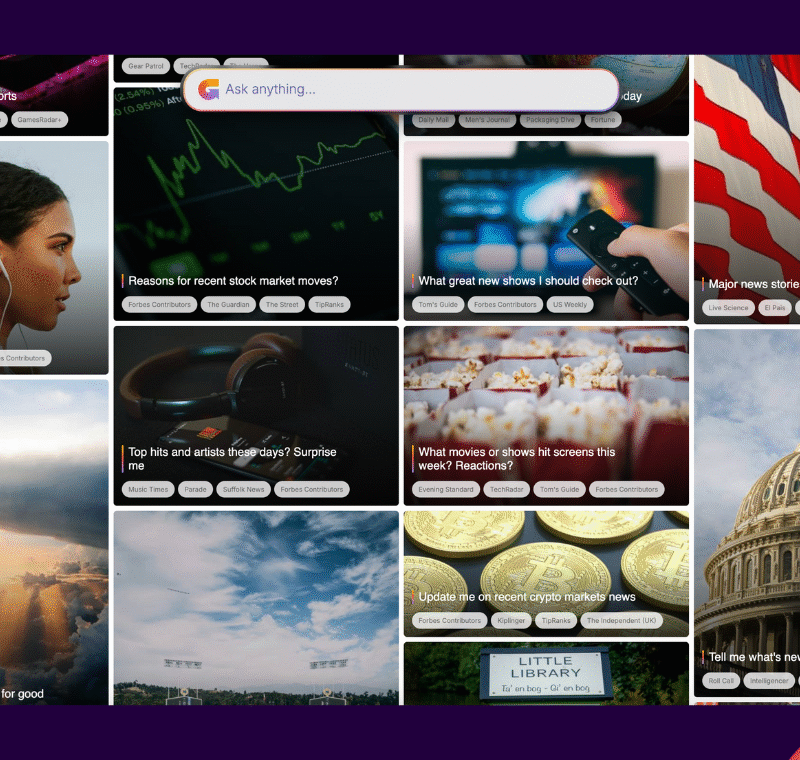How AI is reshaping media: Paul Hood to bring real-world insight to FIPP Congress 2025
As the media industry navigates AI-led transformation, digital strategist Paul Hood brings insight and optimism to the conversation. Ahead of his session at the FIPP World Media Congress in Madrid, he shares why trust, creativity and human leadership are more vital than ever.
Few forces have promised to redefine media as profoundly as artificial intelligence. As AI moves from experimental to essential, Paul Hood, a seasoned leader in digital strategy and innovation, is urging publishers to embrace the opportunities it brings while staying rooted in purpose and trust.
With a career spanning traditional publishing and data-driven transformation, Paul has witnessed – and led – media evolution up close. “My path in media has always been driven by a fascination with how technology can reshape storytelling and business models,” he says. “AI is the next frontier: its potential to automate, personalise and unlock new forms of creativity is simply too significant to ignore.”
To deepen his expertise, earlier this year Paul took a step back from industry life and enrolled on the Oxford University Artificial Intelligence Programme. “It was a tremendously useful course, and it has helped me better understand how AI and digital tools can empower journalists, engage audiences and create sustainable business models,” he says.
Paul will be bringing this combination of high-level vision and real-world practicality to this year’s FIPP Congress, in Madrid. As a speaker exploring how AI is transforming media operations and strategy, and delving into the wider implications of AI for global power dynamics, delegates can expect real-world examples of how AI and digital transformation are being implemented, what works, and what pitfalls to avoid. “We’ll go beyond the hype to discuss actionable strategies for building trust, driving innovation, and future-proofing media businesses,” he says.

From back office to front of mind
Paul acknowledges how AI’s role in media has evolved dramatically in recent years. “Just a couple of years ago, AI was mostly a back-office tool – automating repetitive tasks like tagging, basic editing, or producing earnings reports. Today, it’s front and centre: powering personalised recommendations, generating content, and even predicting audience trends.”
What’s changed, he says, is the scale and maturity of adoption. “The shift has been from experimental pilots to mainstream adoption,” he says. “According to recent industry reports, over a quarter of publishers now use AI regularly, with many more actively experimenting. The conversation has matured from ‘Can AI help?’ to ‘How do we deploy it responsibly and at scale?’”
Enhancing the human touch
For Paul, the most promising applications are those that free up time, improve responsiveness and deepen audience engagement.
“Automated content generation for routine stories – like financial results or sports recaps – lets journalists focus on analysis and investigative work,” he says. “Personalisation engines tailor content recommendations to individual readers, increasing engagement and loyalty. AI-powered analytics help publishers understand what resonates and why, enabling smarter product development and more responsive editorial strategies.”
He also highlights accessibility and emerging formats. “Conversational AI – chatbots and voice assistants – are opening new ways for audiences to interact with content, especially on mobile and emerging platforms. We’re also seeing AI support in translation, accessibility, and even video and audio production. The key is using AI to enhance, not replace, the human touch.”
Trust: The defining challenge
But the rise of AI in editorial workflows brings ethical concerns – as well as audience scepticism. “This is the defining challenge of our era,” Paul says. “Innovation can’t come at the expense of trust. Audiences are increasingly aware, and rightly sceptical about AI’s role in media. Research shows that over 80% of news consumers expect clear disclosure when AI is involved, and most care deeply about the ethics behind it.”
The most forward-thinking publishers are responding with transparency. “The best publishers are labelling AI-generated content, publishing clear AI policies, and ensuring human oversight at every stage,” he explains. “It’s about being upfront – explaining how AI is used, why, and what safeguards are in place. Trust is built through openness, accountability, and a commitment to editorial integrity.”
Beyond the tools: A cultural shift
Despite years of digital transformation, Paul believes many media organisations are still missing the bigger picture.
“Many still see digital transformation as a technology project, rather than a cultural and organisational shift,” he says. “The biggest mistake is treating it as a one-off initiative – buying a new CMS or launching an app – rather than embedding digital thinking into every layer of the business.”
True transformation, he says, is rooted in mindset; “Empowering teams to experiment, learn from data, and adapt quickly. It’s also about breaking down silos – between editorial, product, and commercial teams – and focusing relentlessly on audience needs. Technology is an enabler, not the end goal.”
So what does a successful digital transformation strategy look like? Paul offers a simple but powerful checklist:
- Leadership commitment: “Transformation starts at the top, with leaders who champion change and set a clear vision.”
- Audience obsession: “Every decision should be driven by a deep understanding of your audience’s needs and behaviours.”
- Agility: “The ability to test, learn, and iterate quickly is crucial – especially as technology and consumer habits shift.”
- Cross-functional collaboration: “Success comes when editorial, product, tech, and commercial teams work together, not in isolation.”
- Continuous learning: “Invest in upskilling teams, fostering a culture where curiosity and experimentation are rewarded.”
Purpose-driven progress
As FIPP celebrates its centenary, Paul sees this year’s event as a landmark opportunity.
“I am honoured to be part of this historic FIPP Congress,” he says. “Having attended the FIPP Insider in Brazil this June, I was genuinely impressed by the calibre of discussion and the openness to new ideas. Madrid promises to take that energy to another level.”
If there’s one message he hopes delegates will take away from his session, it’s that AI alone isn’t the answer. “The future of media belongs to those who can harness technology without losing sight of their core values,” he says. “AI is a powerful tool, but it’s our human judgement, creativity and commitment to truth that will define our success. Embrace change, but lead with purpose and integrity.”
The FIPP World Media Congress takes place in Madrid, Spain, from 21-23 October 2025.
This event will bring together media professionals from across the globe for three days of insightful discussions, keynote presentations, workshops, and unparalleled networking opportunities. Whether you’re a seasoned industry leader or a rising innovator, the FIPP Congress promises to be an unforgettable gathering that will shape the future of media.
See the agenda here, the list of speakers here and book your place with the Summer Special Rate here.
FIPP CENTENARY PARTNERS
 |
| UPM Communication Papers FIPP Strategic Partner 2025 |
SILVER PARTNERS
EVENT ORGANISED IN PARTNERSHIP WITH
MEDIA PARTNER






























